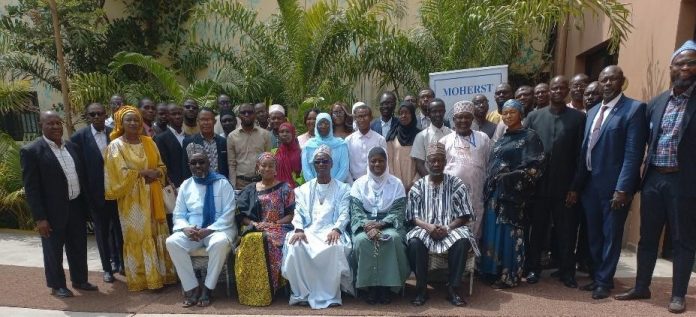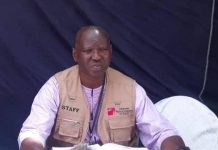By Assan Bah
The Ministry of Higher Education, Research, Science and Technology (MoHERST) on Wednesday convened a one-day validation workshop to review the draft National Research Development and Innovation Council Bill 2025 (NaRDIC), the Research Excellence Assessment Framework (REAF), and the National Research Regulations (NRR), aimed at enhancing research governance in The Gambia.
The validation session, which brought together key stakeholders from academic and government institutions, was described by the Ministry as a “collective moment of national significance,” marking a new chapter in the regulation, promotion, and coordination of research across the country.
Mr. James Gomez, Director of Research at MoHERST, expressed optimism that with the expertise and patriotism of the stakeholders, the Ministry will be able to build a governance structure that is “robust, visionary, compliant, and enabling for generations to come.”
In his opening remarks, Professor Pierre Gomez, Minister of Higher Education, emphasized the urgent need for clarity, coordination, and consistency in the country’s research governance landscape. He pointed out that such policies had never existed in a coordinated form before.
“These policies represent a transformative step in our collective mission to establish a robust, ethical, and forward-thinking research and innovation ecosystem,” he stated.
Professor Gomez elaborated that the NaRDIC Bill 2025 will establish the National Research Development and Innovation Council as the apex body responsible for coordinating and regulating research and innovation activities in The Gambia. The council, he said, will oversee stakeholder engagement, manage the national research fund, ensure compliance with ethical standards, and promote international research partnerships.
Turning to the REAF, he explained that it is designed to evaluate and elevate the quality and impact of research across higher education and research institutions in the country.
“It sets benchmarks for excellence, ensuring that our research outputs meet global standards,” he noted.
Regarding the National Research Regulations, the Minister said they will provide comprehensive ethical governance for all research conducted in the country, safeguarding the dignity, rights, and welfare of research participants, particularly vulnerable populations – while ensuring scientific and legal rigor.
Describing the validation of these frameworks as both timely and transformative, Professor Gomez declared:
“Research is a strategic investment in our nation’s growth, innovation, and resilience. Strengthening research governance is not only about building institutions but also about empowering future generations to thrive.”
He concluded by reaffirming the Ministry’s commitment to fostering collaboration across borders, sectors, and disciplines.
“In higher education, it’s not about what you want, but what is supposed to be—the norms and standards are there. We just have to rise to meet the standards; we should never lower our standards,” he emphasized.




















